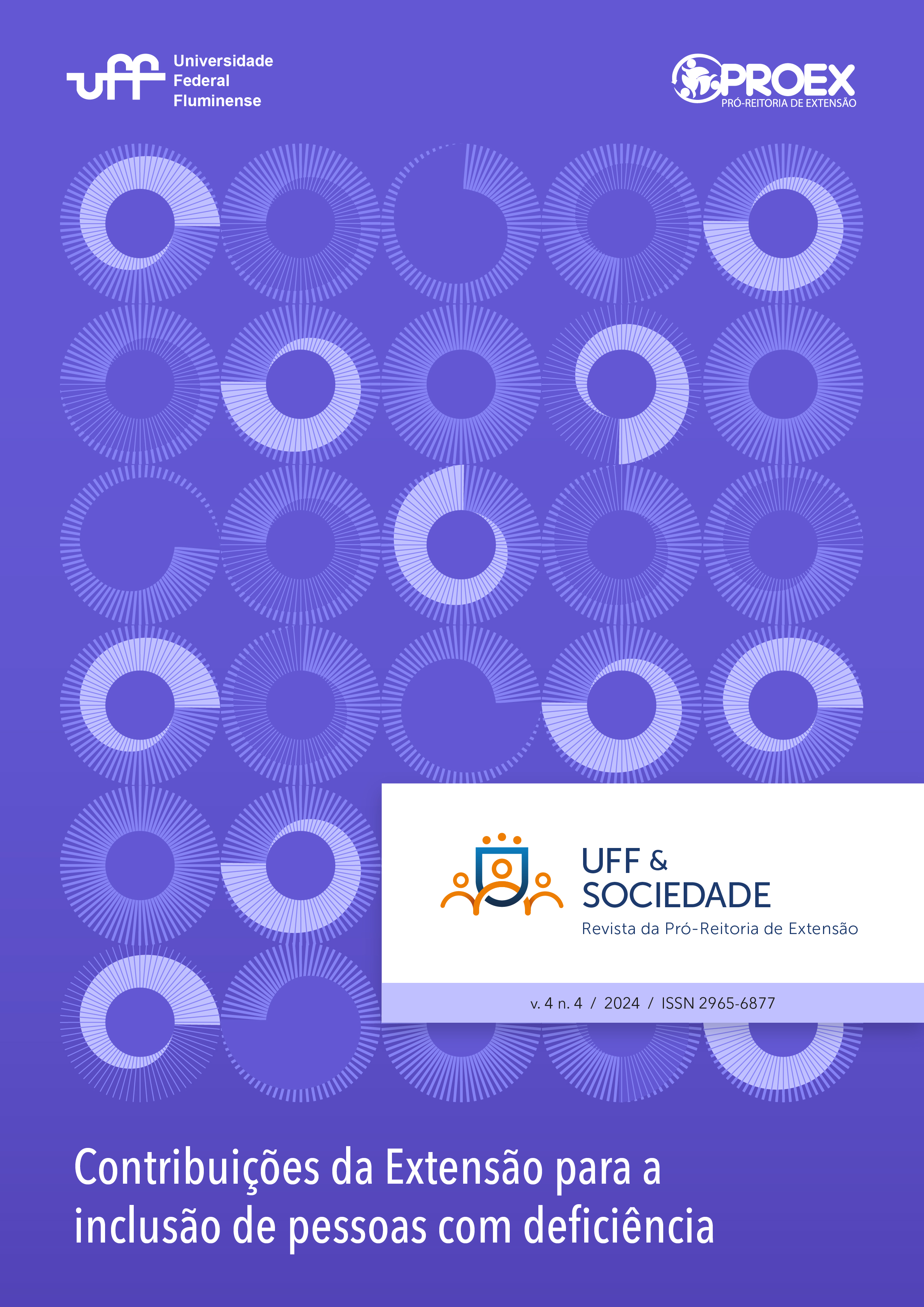Legalization of associations supporting individuals with ASD
the transformative tole of the “UniFOA Collective Guardianship Project”
Keywords:
Non-profit associations, Collective guardianship, ASD, Social inclusion, Legal and accounting supportAbstract
The Collective Guardianship Project of the University Center of Volta Redonda (UniFOA) aims at the legalization of non-profit entities, initially focusing on African matrix religious communities and expanding to other philanthropic associations, including those dedicated to supporting individuals with Autism Spectrum Disorder (ASD) and their families. The interdisciplinary methodology of the project integrates the knowledge of Law, Administration, and Accounting courses to provide legal and accounting support to the benefiting entities. Through workshops, training sessions, and personalized guidance, the project promotes the legalization of entities and strengthens the Third Sector. Additionally, the project seeks to raise awareness and combat stigma associated with ASD through sensitization campaigns and cultural events. The social impact of the project for individuals with ASD includes access to justice, services, and necessary support for a dignified and inclusive life, as well as the creation of networks of support and solidarity.
References
ARAGÃO NETO, Dario et al. Estatuto do Escritório da Cidadania do UniFOA. Fundação Oswaldo Aranha: Volta Redonda, 2014.
ARAGÃO NETO, Dario et al. Relatório do I Encontro das Religiões de Matrizes Africana do UniFOA. Fundação Oswaldo Aranha: Volta Redonda. 2015.
BRASIL. Lei nº 10.406, de 10 de janeiro de 2002. Institui o Código Civil.
CFC – Conselho Federal de Contabilidade. Manual de Procedimentos Contábeis para Fundações e Entidades de Interesse Social. Brasília: CFC, 2004. 176 p.
COELHO, Simone de Castro Tavares; CARDOSO, Ruth Correa Leite. Terceiro Setor: um estudo comparado entre Brasil e Estados Unidos. São Paulo: USP, 1998.
FINKELSTEIN, Maria Eugenia. Direito Empresarial. 6ª Edição. São Paulo: Atlas, 2011.
GAGLIANO, Pablo Stolze. Novo curso de direito civil, volume 1: parte geral. 14. ed. Revisão atualizada e ampliada. São Paulo: Saraiva. 2012.
LANGER, Octaviano. A tutela coletiva como instrumento de acesso à justiça. Revista Eletrônica Direito e Política, Itajaí, v. 5, n. 2, 2º quadrimestre de 2010. Disponível em: https://periodicos.univali.br/index.php/rdp/article/download/6111/3378/16499. Acesso em 9 de julho de 2024.
MILANI FILHO, Marco Antônio F.; CORRAR, Luiz João; MARTINS, Gilberto de A. O voluntariado nas entidades filantrópicas paulistanas: o valor não registrado contabilmente. Contabilidade, Gestão e Governança, Brasília, v. 6, n. 1, p.153-171, 2003. Disponível em: http://www.spell.org.br/documentos/ver/20272/o-voluntariado-nas-entidadesfilantropicas- paulistanas--o-valor-nao-registrado-contabilmente/i/pt-br. Acesso em 10 de agosto de 2022.
PAES, José Eduardo Sabo. Fundações e entidades de interesse social. Brasília: Forense, 1999.
PINHO, Humberto Dalla B. de. A Tutela Coletiva e o Estatuto do Idoso. Revista da EMERJ, [S. l.], v. 8, n. 32, p. 176-189, 2005.
SALAMON, Lester; ANHEIER, Helmut. Defining the nonprofit sector: a cross-national analisys. Manchester: Manchester University Press, 1997.






